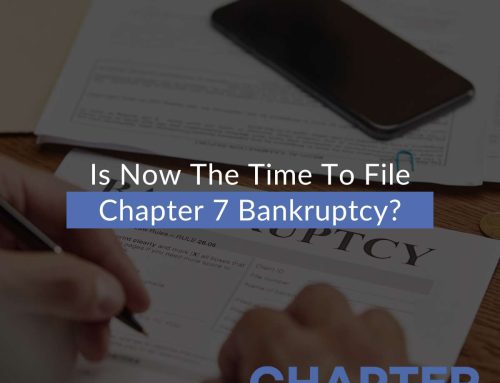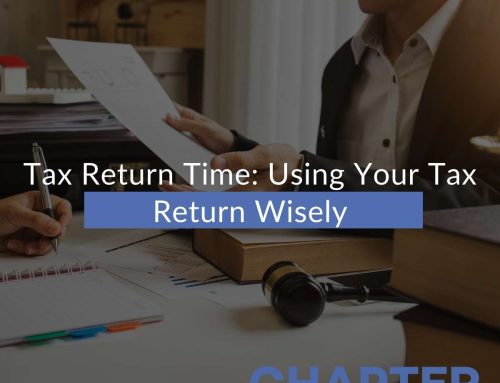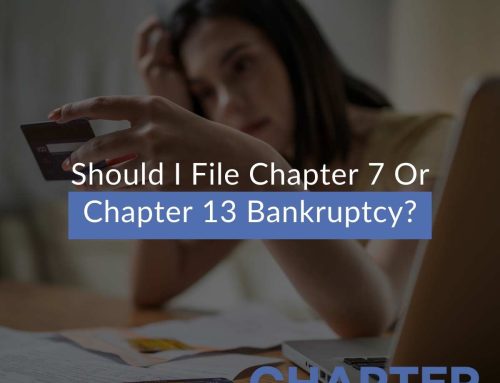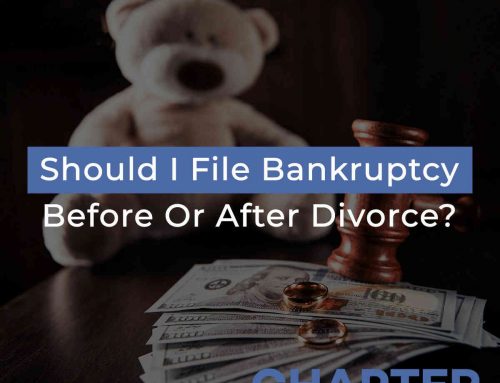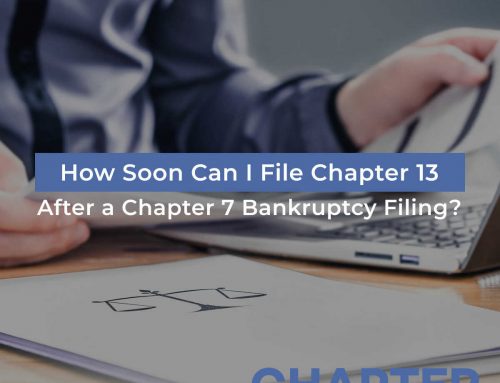Clearing Debt Through Chapter 7 Bankruptcy
Chapter 7 bankruptcy can clear away a broad range of debts so that you can start over with a clean slate. This can be beneficial for a number of reasons. Not only does bankruptcy clear debts, but it can stop wage garnishments, bank levies, home foreclosures, vehicle repossessions, and more. But Chapter 7 bankruptcy isn’t the right debt solution option for everyone. First of all, you need to be eligible under your state’s Chapter 7 requirements, and a certain number of years must have passed if you have filed bankruptcy previously. Second, not all types of debts are cleared in a Chapter 7 bankruptcy. If the majority of your debts are nondischargeable, filing Chapter 7 bankruptcy might not actually be that effective. Read on to learn more about debts you can wipe away with Chapter 7 bankruptcy. If you have any additional questions about your specific debt situation, call 480-833-8000 or use our online form to schedule your free consultation.
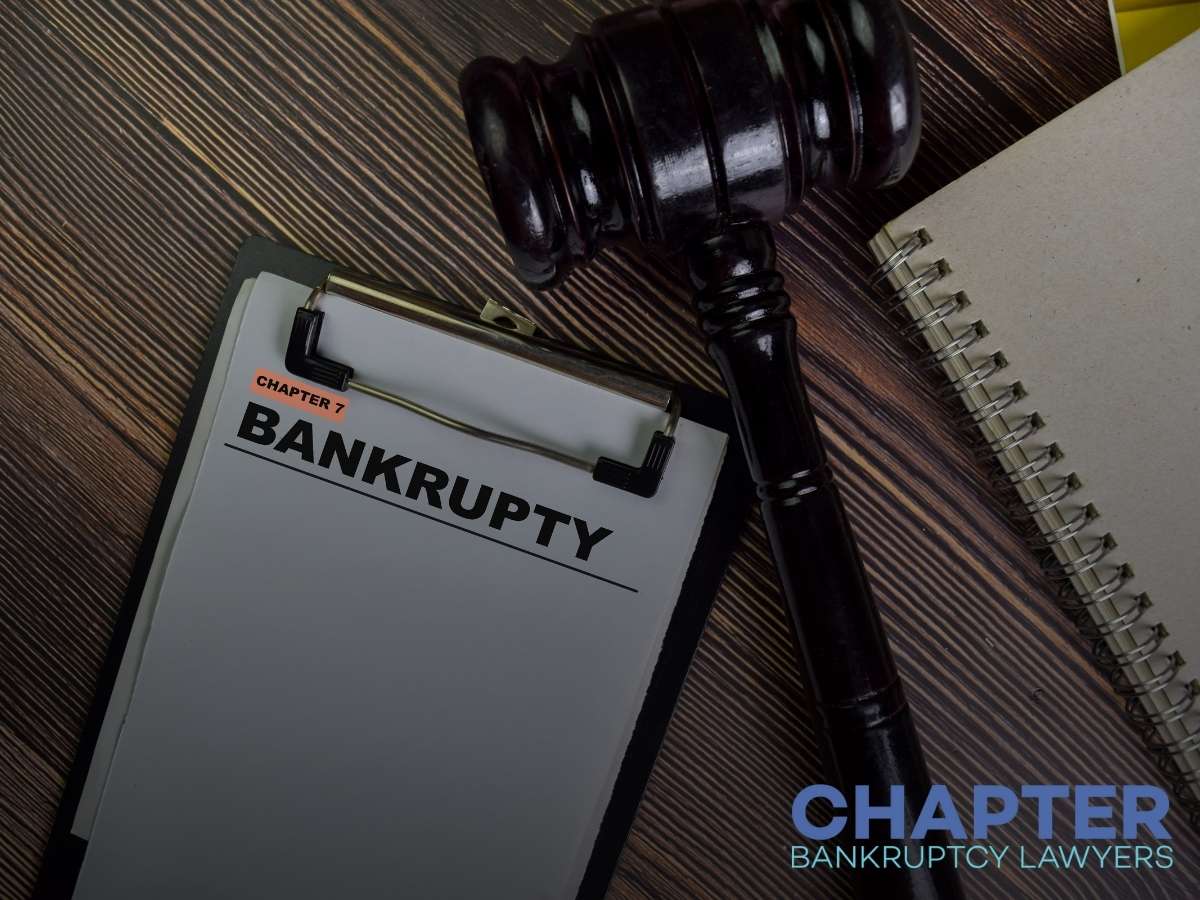
- Credit card bills: Credit card debt is a burden that usually can be eased by Chapter 7 bankruptcy. However, there are certain limitations to discharging credit card debt in Chapter 7 bankruptcy. The trustee will be reviewing your financial information to make sure you weren’t purposefully maxing out your credit cards on discretionary purchases before filing. Your cash advances on your credit cards can’t exceed $1,000 in the 70 days before you file. You also can’t spend more than $725 on luxury items in the 90 days before you file. If so, your creditors will likely file an adversary proceeding against you. You definitely want to avoid the need for an adversary proceeding in your bankruptcy whenever possible. If your creditor is successful at this hearing, their debt will be excluded from your bankruptcy, and you will still owe it after the rest of your debts are discharged.
- Medical bills: Medical debt is one of the top reasons that people in the United States declare bankruptcy. Your medical creditors are typically prepared for some patients to file bankruptcy, and don’t tend to object to their debts being discharged often. However, medical creditors may be willing to work out payment plans and you may be able to have hospital debt discharged if you meet certain income limits. You should discuss your medical debt with a bankruptcy attorney to make sure that Chapter 7 is your most strategic option.
- Taxes: Taxes can only be discharged in bankruptcy if they have nonpriority status. This means meeting a few requirements: the debts must be from at least 3 tax years prior, the returns must have been filed for at least 2 years, the debt must have been assessed at least 240 days prior, and the tax returns can’t be fraudulent. Any tax debts that don’t meet these requirements will not be discharged by a Chapter 7 bankruptcy.
- Repossession deficiencies: When your vehicle or other financed asset is repossessed, it is usually sold at auction. The proceeds from the auction sale will go towards paying your balance on the loan, plus any additional interest and legal fees. There’s a good chance you could be left with a debt known as a repossession deficiency if you owed more on your vehicle than what it was worth when it was repossessed. Because you no longer have the vehicle that was collateral for the loan, this debt becomes an unsecured debt. That makes it eligible for discharge in a Chapter 7 bankruptcy.
- Personal loans: Personal loans can be cleared away by Chapter 7 bankruptcy if they are unsecured. This means that they don’t have an asset secured to them as collateral. Payday loans are a common example of personal loans. Don’t get these confused with title loans, as filing bankruptcy can’t make those debtors give back your vehicle’s title.
- Surrender secured debt: While secured debt technically isn’t dischargeable in Chapter 7 bankruptcy, you can use it as an opportunity to get rid of a secured asset that has become a financial burden, such as a vehicle. As long as you’re okay with not keeping the collateral, you can get rid of secured debt in Chapter 7 bankruptcy. If your vehicle needs significant repairs or simply no longer is suitable for your family, Chapter 7 could be your chance to get rid of your old vehicle and finance a new (or used) vehicle. You may be eligible for vehicle financing just days after your case is filed. You might even qualify for a better interest rate, even after filing bankruptcy.
- Past due utilities: Let’s say you moved out of an apartment and into a new one, and never paid off your internet bill at your previous apartment. You can get rid of that debt in your Chapter 7 bankruptcy. However, the utility provider can decline to provide service to you if you discharge their debt in bankruptcy. If you ever need to resume services with the same provider later in life, you may have to pay off your pre-bankruptcy balance, even though your legal obligation to pay it was discharged.
NOT Dischargeable In Chapter 7 Bankruptcy
You may have noticed some of your debts missing from the list above. Some common debts may not be affected by Chapter 7 bankruptcy, even if they are technically unsecured. If your debts largely fall into the following categories, you may want to consider Chapter 13 bankruptcy or another form of debt relief instead of Chapter 7 bankruptcy.
- Student loans: While student loan discharge is possible under rare circumstances, you should go into a Chapter 7 bankruptcy assuming that your student loans won’t be cleared with the rest of your debts. If your wages are being garnished due to student loan debt, this will pause while the automatic stay is active. However, you will need to resume payment on your student loans after your case has been discharged.
- Domestic obligations: Court-ordered child support and spousal maintenance can’t be discharged by Chapter 7 bankruptcy. Child support is one of the most common reasons for wage garnishments, yet a Chapter 7 bankruptcy’s automatic stay won’t even stop them. The only way to stop a child support wage garnishment is by filing a Chapter 13 bankruptcy that arranges for full repayment of your back child support.
- Junior mortgages: If you have secondary mortgages and owe more on your home than what it is worth, you may qualify to discharge your junior mortgages in Chapter 13 bankruptcy. This option is not available in Chapter 7 bankruptcy, so you may want to choose carefully if you have junior mortgages and qualify for both bankruptcy chapters.
Figure Out Your Bankruptcy Game Plan with Our Experienced Arizona Bankruptcy Team
When you qualify for both Chapter 7 and Chapter 13 bankruptcy, a full evaluation of your financial situation is necessary to determine which will derive you the most benefit. Our bankruptcy staff at Chapter Bankruptcy Lawyers have decades of experience helping Arizona residents create a new financial future. This allows us to offer efficient service at competitive prices. You may even qualify to file using our ZERO DOWN Chapter 7 payment plan option. To learn more, call 480-833-8000 or use our online form to request your free consultation.
Chapter Bankruptcy Lawyers
Mesa Office
3707 E Southern Ave
Mesa, AZ 85206
Phone: 480-405-1010
Email: [email protected]
Tempe Office
4500 S Lakeshore Dr #300
Tempe, AZ 85282
Phone: 480-562-6145
Email: [email protected]


